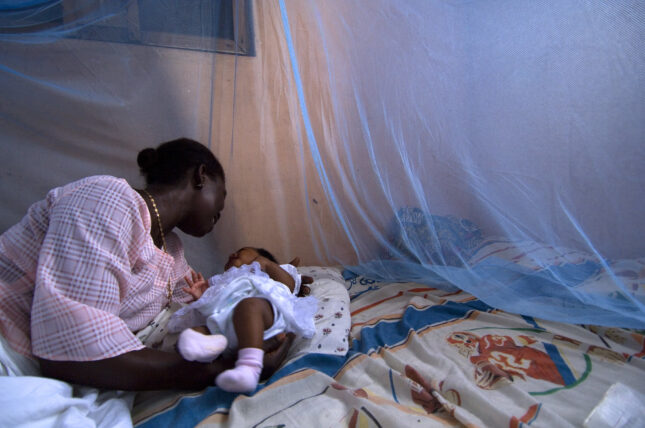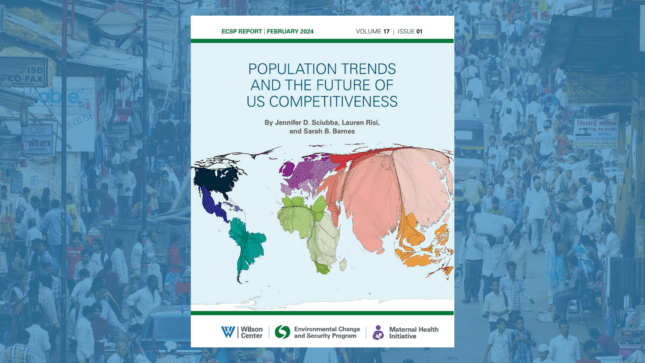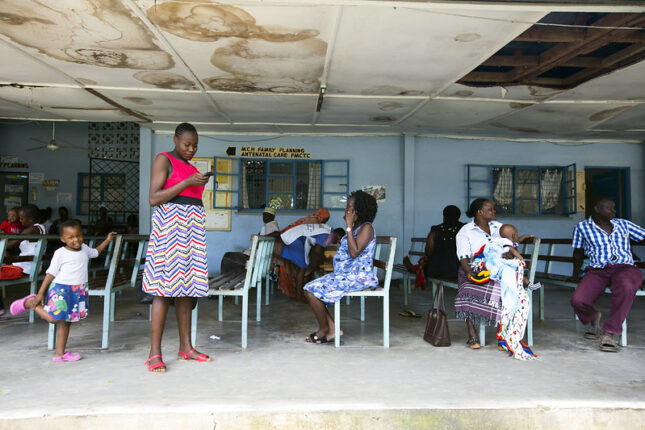-
ECSP Weekly Watch | July 8 – 12
›
A window into what we are reading at the Wilson Center’s Environmental Change and Security Program
Climate Security and Canada’s Promises to NATO (Global News)
As a founding member of the North Atlantic Treaty Organization (NATO), Canada has been influential in the integration of climate change policy with the alliance’s mission. It supported the development of NATO’s Climate Change and Security Action Plan aligning with the alliance’s core tasks of deterrence and defense, crisis prevention and management, and cooperative security. Following the Canadian proposal 2021, Global Affairs Canada and the Department of National Defense jointly lead NATO’s Climate Change and Security Centre of Excellence (CCASCOE) to research and identify best practices to address climate change and security-related challenges.
-
ECSP Weekly Watch | June 10 – 14
› A window into what we are reading at the Wilson Center’s Environmental Change and Security Program
A window into what we are reading at the Wilson Center’s Environmental Change and Security ProgramPublic Citizen, a consumer advocacy group, recently released a report outlining the plight of Latin American Indigenous communities battling against international mining corporations. The study details several examples of transgressions, including an episode from the early 2000s involving Bear Creek, a Canadian mining company awarded a license to explore Indigenous Aymara territories. Their activities sparked organized protests, road blockades, and even violent clashes with police that resulted in deaths and injuries—and forced Peru’s government to revoke Bear Creek’s license.
-
Climate, Conflict, and Changing Demographics Command Attention in New Global Health Security Report
›
A new report by the US Intelligence Community highlights what the world stands to lose if it fails to cooperate on global health. The National Intelligence Estimate (NIE) “Dynamics Shaping Global Health Security In the Next Decade” outlines the dire effects of climate change, changing demographics, and the erosion of trust in institutions on global health security. The NIE on Global Health Security was made publicly available in April 2024, on the heels of the Biden-Harris Administration’s launch of a new Global Health Security Strategy.
-
International Day for Maternal Health and Rights: Promoting the Right to Health for Pregnant People Globally
›
April 11 is the International Day for Maternal Health and Rights. Globally, 800 women die each day from preventable causes due to pregnancy and childbirth. Improving maternal health outcomes and preventing maternal deaths requires a human rights-based approach that protects a person’s right to survive childbirth, to access high-quality health care, to government accountability, to equity and non-discrimination when accessing care, and to family planning and contraception. Enshrining these rights for all pregnant people is key to meaningful progress towards the prevention of maternal deaths globally.
-
NEW Global Health and Gender Policy Brief: Malaria and Most Vulnerable Populations
›
Malaria is an immense global health challenge. In 2022, there were 249 million malaria cases, an increase of 5 million as compared to 2021, leading to 608,000 malaria deaths in 85 countries. Yet while these numbers increase, investment and attention to malaria in the past decade has stagnated—and even decreased in areas. Notably, the total spending to eradicate malaria in 2022 was $4.1 billion USD – just over half of the $7.8 billion USD needed to stay on track to reduce new malaria infections and mortality rates by 90% by 2030.
-
International Women’s Day 2024: Investment Can Promote Equality
›
Today, March 8, is International Women’s Day (IWD). It is an annual occasion to celebrate the incredible achievements of women and girls globally, while acknowledging the work still needed to push forward to make the critical human rights issue of gender equality a reality.
-
REPORT LAUNCH | Population Trends and the Future of US Competitiveness
›From the Wilson Center // February 5, 2024 // By Jennifer Dabbs Sciubba, Lauren Herzer Risi & Sarah B. Barnes
This article is adapted from “Population Trends and the Future of US Competitiveness”
Demographic issues intersect with a number of policy priorities on the congressional agenda, including the economy, immigration, health care and foreign policy, but how population trends influence policy outcomes is often overlooked or misunderstood. In a new report, we explore how population dynamics have changed dramatically over the last few decades, and what these changes mean for the economic and security interests of the United States.
-
Is Health Financing Gender Biased?
›
We take for granted the way health programs are financed—and often forget that there are biases in financing functions that undermine equitable access to health care.
For instance, through gender advances, women now decide on contraceptive use and childbearing. Yet the health financing related to those services tends to emphasize improving efficiency and optimizing resources, without necessarily aligning its objectives with gender equity or inclusivity.
Showing posts from category health systems.











